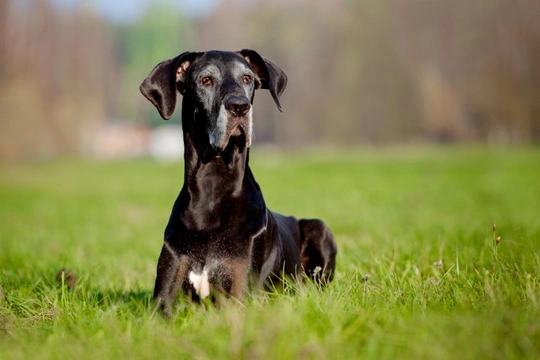
Six health conditions to be alert for in older dogs
Dogs are considered to reach the first stages of old age by the time they hit their seventh or eighth birthdays, and for giant dog breeds like the Newfoundland dog, sometimes even younger.
While many dogs-particularly those of generally healthy breeds, and mixed breeds that benefit from the advantages of hybrid vigour-will live well into their late teens or even older, canine senior citizens are exponentially more prone to developing a range of different health conditions as they age, due to a combination of the body’s natural degeneration towards the later stages of life and the long-term impact of various different environmental factors.
A health condition that develops for the first time in a senior or elderly dog does not by any means mean that said dog is on a downward spiral and will not live for much longer-but being aware of the comparative fragility of the older dog when compared to a robust, fit youngster in the prime of their life is important.
Additionally, being alert to some of the most common conditions and problems that generally do not develop in dogs until old age means that the dog owner can identify a potential issue in the making early on and so, begin treatment or management promptly. This in turn can help to minimise the impact of such conditions or ensure that they are brought under control promptly, reducing the negative impact that they can have on both the quality of life and lifespan of the dog too.
In this article, we will look at six common health conditions that owners of senior and elderly dogs should be alert for. Read on to learn more.
Dental disease
Dental disease can affect dogs of any age, but it is much more common in canine senior citizens due to the amount of wear and tear that their teeth have faced throughout their lives, and the time it takes for problems to develop. While vets strongly recommend that all dog owners get into a routine of cleaning their dog’s teeth regularly several times a week, few dogs owners actually do this-which means that all of the problems that we associate with poor dental hygiene are likely to develop over the lifetime of the dog.
Rotting teeth, gun decay, plaque, tartar, broken and missing teeth and every other dental issue that you can think of-including of course bad breath-are common issues in older dogs that have not received regular dental care throughout their lives.
Problems such as these will be painful for your dog, affect their ability to eat normally and can even affect the digestive system too-so schedule a dental check-up for your dog with your vet, and consider booking them in for a thorough sedated dental clean and treatment.
Arthritis
Arthritis can again strike at any age, although the risk of arthritis increases greatly for every year that your dog ages once they reach maturity. Arthritis is an inflammatory condition of the joints of the bones that can both be very painful and affect your dog’s freedom of movement.
If your dog has started displaying signs of stiffness in the mornings or after rest, they seem less supple than they used to be or they are suffering from joint pain or stiffness in general, ask your vet to check them out and discuss options for keeping your dog comfortable and mobile.
Mental and behavioural changes
One common but often overlooked aspect of health in the aging dog is the impact that mental changes can have upon them. Just as older people are more likely to become forgetful, face confusion or experience time differently, so too can older dogs suffer from similar issues, including dementia and a canine variation of Alzheimer’s disease.
Whilst brain aging of this type cannot be reversed, there are several ways in which you can attempt to monitor and slow the development of brain aging and feed your dog and use supplements to help to support brain activity in old age.
Weak bladder
Older dogs will not be able to hold their bladders as long as younger dogs, and so a dog that could previously be left alone for several hours at a time might begin toileting inappropriately and/or needing to pass water more often.
This is due to the physical changes that affect both the dog’s bladder muscles and urinary system as well as potentially the impact of mental changes, so never punish your older dog for inappropriate toileting, but do talk to your vet about solutions and management.
Heart problems
Heart problems such as heart disease, weakness and congested arteries are all more common in older dogs, and if your dog has spent the main part of their life being overweight or obese, heart disease in later life will often be the result.
If is wise to have your vet listen to your dog’s heart and monitor its health every six months to a year as your dog gets older, in order to identify any problems quickly and provide the appropriate treatment or management options.
Sensory decline
Finally, your dog’s senses will also start to lose their acuity as your dog ages, which can manifest as hearing loss, eyesight loss and even a decline in your dog’s sense of smell. A range of other problems such as cataracts are more common in older dogs too, so if the appearance of your dog’s eyes is changing or they appear to be losing their vision, ask your vet to investigate promptly in order to preserve their vision.



